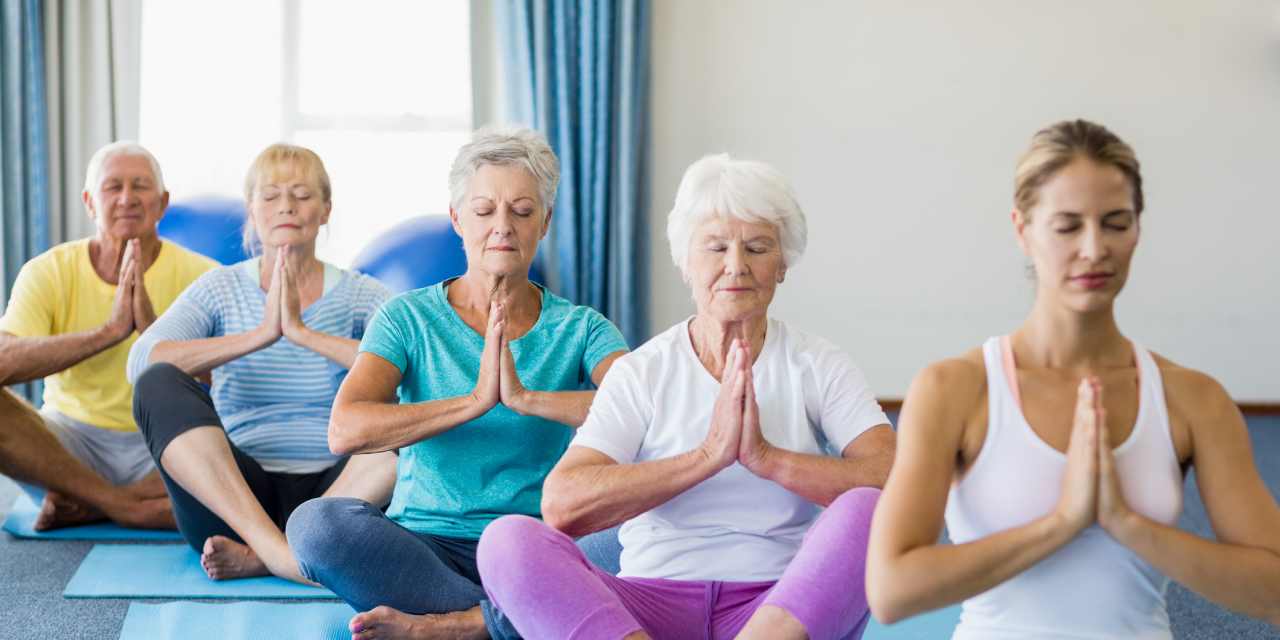As Nathalie Martin considered her retirement from a career as a law professor, she dedicated several years to exploring what this phase of life might entail. The outcome is a new publication titled “The Inspired Retirement: Purpose and Passion in Your Next Adventure.”
Martin, aged 64, instructs courses on mindfulness within the legal field, along with commercial and consumer law, at the University of New Mexico School of Law. In addition to these responsibilities, she also leads yoga and meditation sessions — an activity she hopes to focus on more once she retires.
“This book has been a dream I’ve had for my entire life. However, it’s also what we refer to as ‘me-search’ — I wrote this for myself as well. I am someone who can become overly attached to my title, my position, and my corner office and similar things,” Martin said.
The book includes conversations with older adults regarding what gives them happiness and a sense of direction, along with talks about mental and physical wellness activities like yoga, mindfulness, and keeping a journal. It also provides useful advice for retirement, such as factors to consider when thinking about moving or how to plan for the use of time and resources.
The book is released as American society experiences a demographic change known as Peak 65 — approximately 11,000 individuals reach the age of 65 each day, with over 30 million people set to retire within the next ten years.
As people age and live longer, retirement may span several decades, and numerous retirees seek activities beyond golf and pickleball—they desire meaning and challenges that support their ongoing development. Social interaction and a sense of community can also assist individuals in preventing loneliness and isolation during retirement, according to Martin.
Read:‘Golden Girls’ is gone: How America’s view of aging has become obsolete
Martin, who has also authored publications for legal professionals, mentioned that she wrote “Inspired Retirement” for a broad audience but believes it will especially connect with those who have not had the opportunity to consider retirement because of their demanding careers.
“For the high-achieving professional who has dedicated their life and energy to their career for forty years or more, I believe there can be a significant emptiness. I’ve observed this in the individuals I’ve interviewed and others I know who are extremely afraid to stop working,” Martin said.
“Then there are people who are forced into retirement for various reasons, and they lose their social connections and a significant part of their identity. There are also those who haven’t made the transition yet, and that’s the group the book is intended for — to spend some time thinking about, if I weren’t doing this, what would I like to do? Which groups would I want to be involved with?” she said.
Some individuals envision retirement as a time of continuous leisure, yet many others seek meaning and stimulation, according to Martin.
“I believe that when you remove the element that has shaped your identity for so long and you’re uncertain about what to do in its place, it can seem very hollow. Everyone requires a challenge—not one that is life-threatening, but something that keeps them engaged and stimulated every day to remain fully alive,” Martin stated.
Understanding how to discover those elements in retirement demands reflection, Martin stated, and she suggests yoga, meditation, and keeping a journal as methods to achieve this.
Individuals in high-level professional roles are constantly on the move. When you never take a moment to reflect on what you might want to do or what you haven’t had the opportunity to do yet, those thoughts can emerge,” Martin said with the aid of mindfulness techniques. “I hope [the book] will assist people in managing this transition that our society hasn’t really prepared them for.
Spending time in retirement demands consideration and work, Martin stated. She believes that volunteering is essential for transferring the skills and achievements of older individuals, while also offering direction and a sense of belonging for retirees.
A large number of individuals are about to retire. These people possess many valuable skills. Society also gains from this,” Martin stated. “I observe the remarkable energy and expertise that older individuals have, which can be beneficial for those who lack these qualities.
Retirees are expected to contribute 58 billion hours of volunteer work from 2016 to 2035, equivalent to nearly $1.4 trillion in services, as reported by a Merrill Lynch retirement study done in collaboration with the consulting company AgeWave. However, only roughly a quarter of the country’s 70 million retirees engage in volunteering, according to Ken Dychtwald, the CEO of AgeWave.
Besides being conscious of how they allocate their time, Martin also encourages retirees to consider carefully how they use—and distribute—their money.
“Donate funds in a manner that holds personal significance. It’s not just about contributing to a large organization, but rather supporting a local cause or even an individual in need. The way we give reveals our values, just as the way we spend money does,” Martin stated.
Regarding her own retirement, Martin mentioned that it is still many years off. She intends to continue teaching full-time for a few more years while considering her future direction. At this stage, she shared that her goal is to teach yoga and meditation and to support breast-cancer survivors—she is one of them—while also teaching law on a part-time basis.
She expects that transitioning from being a law professor to becoming a retiree might involve some changes.
I observe how individuals treat me as a yoga instructor versus how they view a law professor. In that context, they don’t perceive me as equally valuable,” Martin stated. “It’s challenging after spending so much time in these intellectual or high-level positions. … Occasionally, you need to modify your ego. Hopefully, we all have the bravery to do so — to distance ourselves from what others consider significant.







